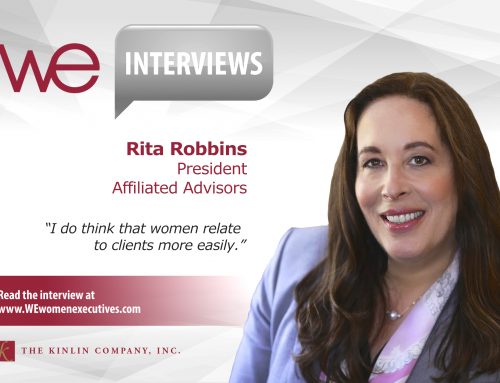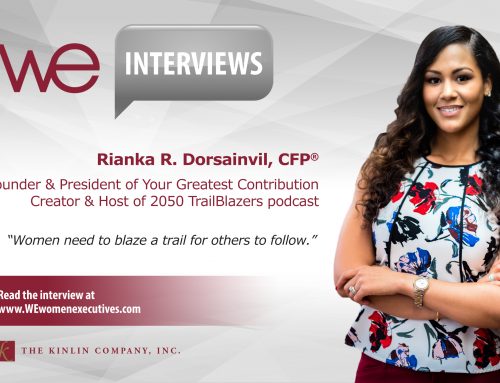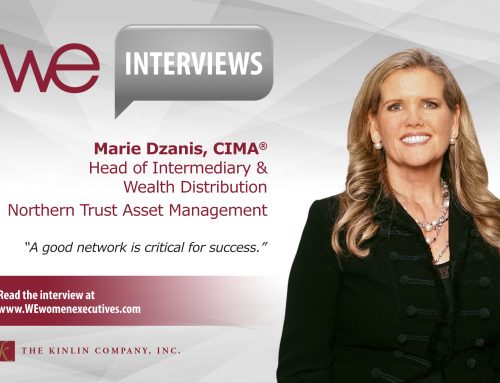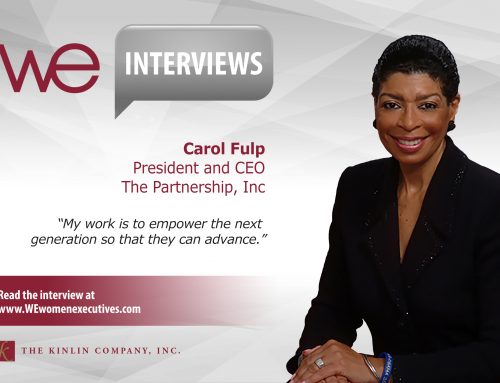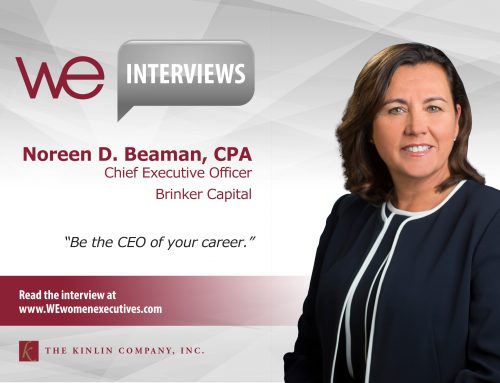 Alisa Amarosa Wood
Alisa Amarosa Wood
Member
Kohlberg Kravis Roberts
As a Member (the firm’s highest rank) at Kohlberg Kravis Roberts (KKR) overseeing the firm’s global capital raising and product development across private equity, energy, infrastructure, and real estate, Alisa Amarosa Wood covers a significant part of the firm’s business areas.
Having been part of KKR for over a decade, Alisa is proud of the firm’s growth from 190 when she joined to approximately 1,200 employees around the globe today, with assets under management totaling close to $100 billion as of March 31, 2015 and over a $13 billion balance sheet.
I recently sat down with Alisa to discuss the story of her success in this intensely competitive environment. In Part Two of our interview, she shared her perspective on women in the private equity space and the need to look at educational and hiring practices with a fresh eye.
Hires should be creative
Alisa’s path into private equity was unconventional and largely solitary, it seems. And although the field has experienced some changes in recent years, there are still very few women in the space. I asked her if she had any thoughts on this state of affairs.
“First and foremost, I really do think it’s changing. I see the change; I see our change. Looking at the growth of women in our business here at KKR in the last five years alone—it’s been exponential—and that’s really exciting.
“Do I think KKR is doing a better job of finding those women than other people? Yes, I do. But I think that it’s representative of the industry as well. Take a step back: where are the key places that private equity firms hire from? Typically, it’s either consulting firms or investment banks, and historically there have not been a lot of women in either place.
“When I look at the majority of my friends, most are not in finance. A lot of my friends opted to get a legal degree, which they felt offered some type of security, so if they did want to take a couple of years off they could, because it was more of a prescriptive track. You can argue whether or not that’s true, but 15+ years ago, that was the view. When I look at my investment banking class, maybe 10 or 15 percent were women, and some of them are incredibly successful today. Some of my friends have left banking, but a couple of them are still in private equity and a couple of others have started their own businesses.
“When you look at what happens in the places from which we’d typically hire, at a certain level women would switch careers and do other things rather than staying at an investment bank for a lot of years. We realized that if we keep hiring from those same pools and women are self-selecting out or taking themselves out of that work pool and doing other things, we’re not seeing the full extent of the talent that we could be considering. So we said, ‘What about hiring from law firms?’
“Women comprise 50 percent of law school graduating classes today, give or take. Why wouldn’t we hire a fantastic M&A lawyer? Why couldn’t she be a good private equity person? The answer is, ‘She can.’
“Why aren’t we thinking about hiring not just from investment banking programs but also from capital markets desks or from the various industries directly? For instance, one of our senior women, who is a Member and one of the leads of our energy business, was a geologist and ran exploration for Texaco. Admittedly, that’s not a typical hire for us, but she’s a fantastic energy investor.
“In other words, we’ve gotten more creative about selecting the pools from which we hire, which has not only allowed us to find those different types of skillsets that make our firm more successful, but also has enabled us to find more women and diversity than you find in typical talent pools.”
Women’s education is critical
It is clear that Alisa is deeply invested in her work with KKR, but I also discovered that she is active on a number of different committees and boards outside of work as well. How, I queried, did she manage to find time for everything, and what drives her involvement?
“I believe in women’s education—it’s a key theme for me. I believe in mentoring and promoting women in different areas, whether through women’s primary and secondary education, in health or in business. I feel that I’ve been very blessed with opportunities. I was a scholarship kid who went to an all-girls private school here in New York City called Sacred Heart. At a young age, I started thinking about ways to obtain a scholarship that would allow me to attend a private school of Sacred Heart’s caliber. As I grew up, I realized that there were a lot of people who didn’t have the opportunities I had and thought, ‘How could I change that? If women can’t find the right mentors and they don’t network the same way that men do, let’s change that. Let’s figure out the right settings for women to network in.’
“Like all of us, I have a busy life so I try to focus on a few organizations where I can have the most impact—and education, women’s rights and women’s health are the common thread among them all. I have three kids. My middle child is a daughter, and I’m very focused on making sure that she and her generation have a certain level of opportunities. I am also focused on making sure that my two sons see the importance of these issues.”
A work/life balance takes work
Astounded at the grace with which Alisa manages a demanding career, a robust volunteer schedule and three children, I felt compelled to ask her how she handles the always controversial work/life balance. Her answer was refreshingly candid.
“You’ve got to get good at juggling all of it…as Hillary Clinton says ‘it takes a village.’ I am very lucky in that I have an extremely supportive partner in all of this. My husband is a great father, very hands-on. I don’t think it works if that’s not the case. He’s also extremely supportive in the sense that he wants me to succeed, and that’s been very important for us. Yes, we have great folks who help us with childcare, including my mother, which is fantastic—having good childcare matters more than anything. It allows you to do what you do and not worry about the rest of it. My mom lives here in the city and has gone well beyond being a grandmother—she’s very active in our children’s lives. For us, the key is having lots of options and having backup plans to backup plans and making sure they work.
“Also, when we had our first son, one of the promises we made was that we were never going to be the parents who made excuses for why we weren’t going to be home. I’d love to be home, but I have chosen to work. Yes, I can choose not to work, but working creates freedom and allows for a lot of things in life. The reality is, I love what I do and I love the people I work with, and I wouldn’t be happy unless I were here doing it.
“I share those feelings with my kids. Yes, there are days when my heart breaks if I miss certain things. We all do that—that’s being a mom. But at the end of the day, they know I like what I do, they want to understand what I do, and as they get older, they want to come to work with me. When I’m on the road, we connect with FaceTime®. They’ll say, ‘Where are you? What city are you in? Take pictures!’ There’s a great app on the iPad that allows them to track where I’ve been and where I’m going. Technology is a total game changer; it’s very different than it would have been 20 or 30 years ago.
“I also think I’m fortunate to be at a place that is extremely supportive of family, which is not typically synonymous with some of the larger private equity firms. We have a great maternity policy and a strong support network. We actually have senior women and men who have lots of kids—having large families is the norm, which is great.
“Everybody picks their own path. We’re not prescriptive and we realize that the only way we’re going to retain, develop and nurture the people that we want to be the fabric of the firm long-term is to make sure that their home lives work, too.”
Your heart must be in it
As our conversation drew to a close, I asked Alisa a question I frequently pose to the successful women I interview: ‘What tips would you give women who are either on the cusp of getting to that next stage in their career or who are feeling stuck?’
- Acknowledge why you’re doing the work. “You’ve got to love what you do and I think sometimes when we get stuck, it’s because we’re going through the motions, but our hearts are not in it. You’ve got to remember that your degree of commitment is very, very apparent, even though you may think it’s not visible to those around you. So remind yourself why you’re doing things, and make sure you actually love your job instead of just plowing straight ahead because you feel like that’s the only path you have.”
- Ask for help. “Successful people don’t tend to like to ask for help—you want to show that you can do it on your own. Oftentimes, however, it’s the allegiances and the ties that you build and create from that act of asking for help that are enough to get you through whatever you’ve got to do.”
- Seek different perspectives. “If you’re a woman, get the perspective of a man. If you’re a man, get the perspective of a woman. Diversity of thought is probably the most important thing that an executive at any level can bring to the table. It’s very important to acknowledge that you have different constituents and that there are different opinions. The fact that one or two opinions may prevail at the end of the day doesn’t mean you shouldn’t take others into consideration.”
These qualities are key
Before concluding our interview, I was moved to circle back to an earlier segment of our conversation in which Alisa discussed her feelings on the hiring process. I was intrigued by her revelation that some of the firm’s best employees come from non-traditional finance environments and decided to probe a little deeper. What, I asked, are the top three to five attributes that she looks for when hiring someone to work in private equity?
“Among the qualities that are most important to me, and to us as a firm, are an entrepreneurial spirit and a commitment to being a self-starter. I’m looking for people who want to effectuate change, people who want to figure out how we can revolutionize what we do—that’s a huge piece of it, and you can’t teach that to somebody—they either have it or they don’t.
“Humility is also a huge attribute. You clearly have to sell yourself in an interview, but there’s a difference between selling yourself and being arrogant. Some very successful people press against that line a little too closely. We have a saying here: ‘Arrogance kills.’ You need to always try to have a sense of humility in what you do.
“You must be curious. KKR is a very questioning culture, so even though something may be the accepted norm, we’re always trying determine if it’s the norm because somebody said it was or for some other reason, and should it remain the norm? We look for people who really want to get to the root of why we do certain things and how we can do them better.
“Finally, there’s a lack of sharp elbows here. We either succeed together or we fail together. There are no ‘I’s’; there are ‘we’s’. It’s not my idea, it’s our idea. I think that’s really important, and you can tell pretty quickly from talking to someone whether she’s going to fit into that culture. It doesn’t mean that she might not be a fantastic investor and great at what she does. She just may not be the right fit for KKR.”

